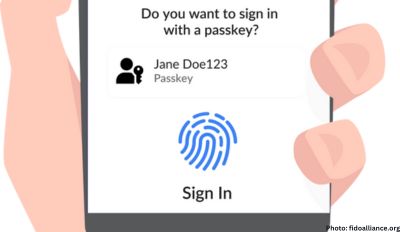Facebook’s messaging app, WhatsApp, has filed a lawsuit against the Indian government in the Delhi High Court, alleging that the government is forcing the app to violate Indian privacy rights in identifying “first originator of information” at the demand of authorities. SitalKalantry is a professor at Cornell Law School, teaches comparative constitutional law with a focus on India, and is an expert in the Indian judicial system. Kalantry says WhatsApp comes to Delhi’s High Court with a strong argument. She adds that the Modi administration’s new rule imposed on WhatsApp is a tool to repress political dissent.
Kalantry says:“The Indian government’s new regulations require WhatsApp to break its encryption and identify certain users to the government. The Indian Supreme Court’s landmark privacy decision in the Puttaswamy case provides protections against this government intrusion. WhatsApp has a strong argument in its case in the Delhi High Court that the government’s new rules do not have a legitimate goal. The rules are one more way that the Modi administration will repress political dissent on social media, which it did during its annexation of Kashmir and the farmers’ protests.” WhatsApp is suing the Indian government over a ‘traceability’ clause in the new Intermediary Rules 2021, which were notified in February this year. In response, the government has called WhatsApp’s act as a one of defiance and wants them to comply.
Here are the top points explaining everything to know about this latest controversy.
1) WhatsApp’s case against IT rules
As reported by indianexpress.com, WhatsApp has said that the new social media rules are unconstitutional and filed the case on May 25, incidentally it was also the last day for companies to comply with the new rules. The Facebook-owned messaging app is invoking the 2017 Justice K S Puttaswamy vs Union Of India judgment in support of its arguments. WhatsApp wants the court to ensure the clause does not come into force, and prevent criminal liability to its employees for non compliance.
2) Traceability means End-to-End encryption won’t work
In a detailed blog post, WhatsApp has also explained that traceability will not work, arguing that breaking end-to-end encryption (E2E) would weaken user privacy on the app and stifle free speech and freedom of expression. E2E encryption is turned by default on WhatsApp for all messages.
Further, WhatsApp will have to re-engineer the app just for India, which won’t happen. If WhatsApp had to comply with the rules, it would have to create a version of the app that supports traceability and doesn’t have E2E encryption.WhatsApp said in its blog that while it supports “reasonable and proportionate regulations”, it cannot stand for “eroding privacy for everyone, violating human rights, and putting innocent people at risk.”
3) Traceability means a lot of data collection
WhatsApp in its blog post makes it clear that in order to trace the originator of any message, it will have to keep a log of all messages. Currently, WhatsApp cannot read a user’s message given the E2E encryption.It says tracing even one message means tracing every single message on the platform and they will have to add some sort of “permanent identity stamp” or effectively ‘fingerprint’ each message. It says that this will be the equivalent of a mass surveillance program.
4) Traceability is not foolproof
WhatsApp and internet experts have made it clear that traceability is not foolproof. Further, when users are forwarding, copying messages, finding the originator becomes difficult. WhatsApp says it might have to “turn over the names of people who shared something even if they did not create it, shared it out of concern, or sent it to check its accuracy,” which would lead to human rights violations as innocent people could end up getting caught in investigations or going to jail.
Further, even if messages are fingerprinted on WhatsApp, these techniques are not foolproof and can be easily impersonated. WhatsApp also says that “traceability” goes against the basic principles of how law enforcement and investigations work.
5) Government response to WhatsApp’s lawsuit
The Ministry of Electronics and Information Technology (MeITY)has called WhatsApp’s refusal to comply with the new IT rules as a “clear act of defiance.” Further, it has said that the right to privacy will come with reasonable restrictions, adding that social media companies will only have to give the originator of a message in select cases and based on an order from a competent court.
The government also questioned WhatsApp’s own commitment to user privacy pointing out that the company plans to “share the data of all its users with its parent company, Facebook, for marketing and advertising purposes.”
6) IT rules on tracing originator
According to the government, tracing the first originator is only under select circumstances and they don’t want to track all messages.Under Rule 4(2) of the guidelines, a social media intermediary could be required to trace an originator of a message or tweet or post “only for the purposes of prevention, investigation, punishment etc. of inter alia an offence relating to sovereignty, integrity and security of India, public order incitement to an offence relating to rape, sexually explicit material or child sexual abuse material punishable with imprisonment for not less than five years.”
7) Three red ticks on WhatsApp calls, messages?
There is a fake WhatsApp message going viral claiming that three red ticks will appear on messages indicating that the government is reading and recording all calls, messages on the platform. This is patently false and has been debunked earlier as well. It is best to ignore this message and not forward to others. Read more about it here.
8) Google and others on the new social media rules
The new IT rules impact all social media intermediaries and companies, not just WhatsApp or Facebook or Twitter. This includes Google as well, which is another major player in the market.In a statement, CEO Google SundarPichai said the company will comply with all laws. “It’s obviously early days and our local teams are very engaged… we always respect local laws in every country we operate in and we work constructively. We have clear transparency reports, when we comply with government requests, we highlight that in our transparency reports,” he said, reported PTI.
While WhatsApp is fighting a lawsuit against the new IT rules, its parent company Facebook. “Pursuant to the IT Rules, we are working to implement operational processes and improve efficiencies. Facebook remains committed to people’s ability to freely and safely express themselves on our platform,” a spokesperson for the company said.Twitter has issued a statement on its platform around the IT rules as well. “We, alongside many in civil society in India and around the world, have concerns with regards to the use of intimidation tactics by the police in response to enforcement of our global Terms of Service, as well as with core elements of the new IT Rules,” the statement said.
“We plan to advocate for changes to elements of these regulations that inhibit free, open public conversation. We will continue our constructive dialogue with the Indian Government and believe it is critical to adopt a collaborative approach. We believe that it is the collective responsibility of elected officials, industry, and civil society to safeguard the interests of the public,” the statement adds.
Under the new guidelines, significant social media intermediaries (those with more than 50 lakh users in India) have to appoint a resident grievance officer, a chief compliance officer and a nodal contact person. The guidelines state these employees need to be residents of India.











